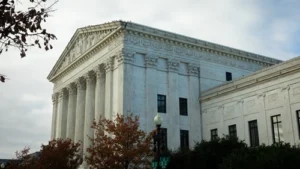The American Civil Liberties Union (ACLU) has raised serious concerns about the Federal Bureau of Prisons’ (BOP) inadequate implementation of the First Step Act (FSA), a bipartisan criminal justice reform law enacted in 2018. The ACLU’s critique highlights systemic issues within the BOP that hinder the law’s effectiveness in reducing recidivism and improving prison conditions.
Background on the First Step Act
The First Step Act was designed to reform the federal prison system and reduce recidivism. Key provisions of the act include:
- Sentencing Reforms: Reduction of mandatory minimum sentences for certain non-violent offenses and retroactive application of the Fair Sentencing Act of 2010, which addressed disparities between crack and powder cocaine sentencing.
- Earned Time Credits: Implementation of a system allowing inmates to earn time credits for participating in rehabilitative programs, potentially leading to earlier release.
- Compassionate Release Expansion: Easing the process for elderly and terminally ill inmates to seek compassionate release.
- Improved Prison Conditions: Mandating the placement of prisoners closer to their families, prohibiting the shackling of pregnant women, and increasing access to sanitary products for female inmates.

ACLU’s Critique of BOP’s Implementation
Despite the FSA’s promise, the ACLU argues that the BOP has failed to fully implement several critical aspects of the law:
- Risk and Needs Assessment Tool: The ACLU contends that the BOP’s tool for assessing inmates’ risk levels and needs is flawed, potentially leading to inaccurate classifications that affect inmates’ access to rehabilitative programs and earned time credits.
- Earned Time Credits Application: There are reports that inmates eligible for earned time credits have not received them, delaying their potential release dates and undermining the law’s intent to incentivize rehabilitation.
- Compassionate Release Procedures: The ACLU points out that the BOP’s process for compassionate release remains cumbersome, with many eligible inmates facing significant delays or denials without clear justification.
- Inadequate Programming: A shortage of quality rehabilitative programs means that inmates are deprived of opportunities to earn time credits and prepare for successful reintegration into society.
Implications of Non-Compliance
The BOP’s shortcomings in implementing the FSA have several adverse effects:
- Continued Overcrowding: Failure to release eligible inmates exacerbates prison overcrowding, leading to deteriorating living conditions and increased tension within facilities.
- Wasted Resources: Without proper implementation, the resources allocated for rehabilitative programs and reforms are underutilized, resulting in inefficient use of taxpayer money.
- Erosion of Trust: Non-compliance undermines public trust in the criminal justice system’s ability to reform and rehabilitate offenders.
ACLU’s Call to Action
In response to these issues, the ACLU urges the following actions:
- Independent Oversight: Establishment of an independent body to monitor the BOP’s implementation of the FSA and ensure compliance with the law’s provisions.
- Improved Transparency: The BOP should provide regular, detailed reports on the status of FSA implementation, including data on earned time credits, program availability, and compassionate release applications.
- Enhanced Training: Comprehensive training for BOP staff to ensure they understand and effectively execute the FSA’s requirements.
- Adequate Funding: Allocation of sufficient resources to develop and maintain quality rehabilitative programs that facilitate inmates’ successful reentry into society.
Conclusion
The ACLU’s critique underscores significant challenges in the implementation of the First Step Act by the Bureau of Prisons. Addressing these issues is crucial to realizing the law’s goals of reducing recidivism, improving prison conditions, and promoting justice within the federal prison system. Without prompt and effective action, the promise of the First Step Act remains unfulfilled, leaving systemic problems within the U.S. criminal justice system unaddressed.















